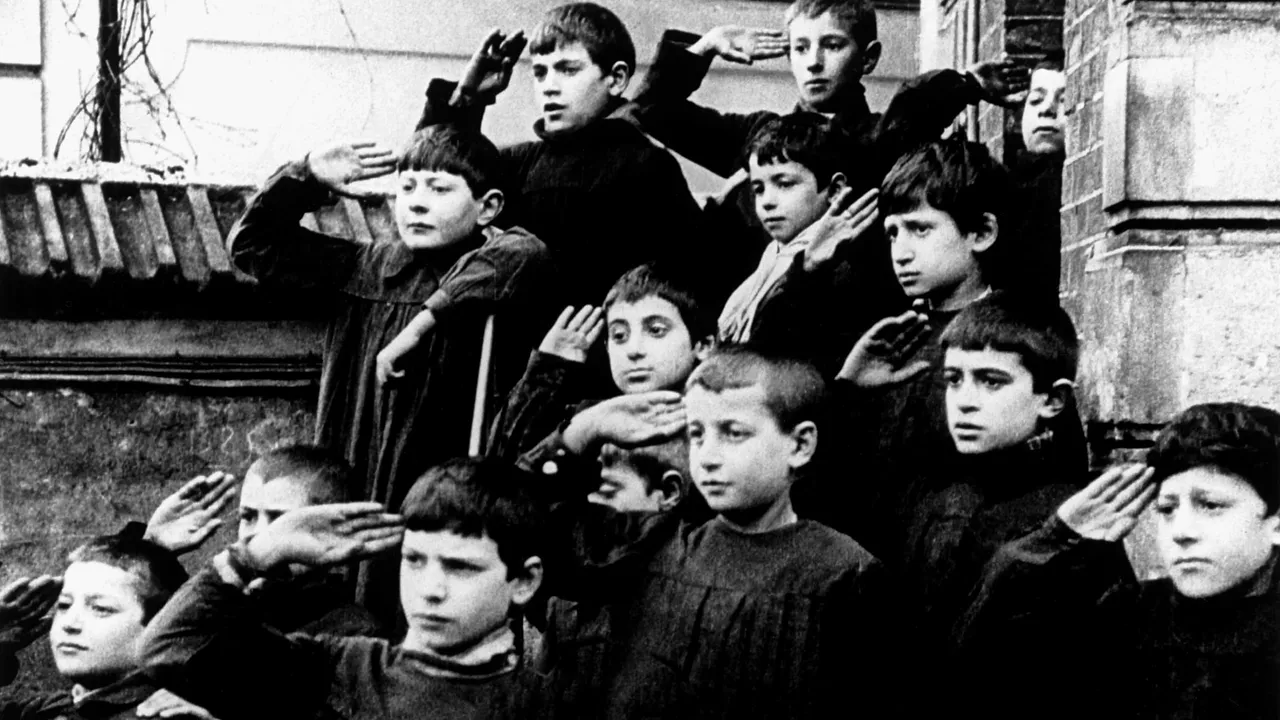
Youth rebelling against adult authority is something traditionally associated with Baby Boomer generation and social turmoil of 1960s. Yet, similar phenomena, to bigger or lesser degrees, occurred earlier in history and, in one very particular case, similar sentiments inspired one very influential film. It was Zero for Conduct, 1936 French drama directed by Jean Vigo.
Jean Vigo during his short life made only four films. Zero for Conduct was his third film (following two short documentaries A propos de Nice and Jean Taris, Swimming Champion) and the most personal. Vigo had been born as a son of militant anarchist Michel Almereyda and, following father’s incarceration and death, has spent most of his formative years in boarding schools under assumed names. Those experiences served as an inspiration for the plot of this film. It begins with the end of holidays when the young pupils return to boarding school for boys. It is a dark, oppressive place where teachers and supervisors, led by dwarfish principal (played by Delphin), try to exert their authority through system of punishment, including “zero for conduit” which bans pupils from leaving school premises on Sunday and students are forced to eat beans all the time. Three pupils – Caussat (played by Louis Lefebvre), Colin (played by Gilbert Prouchon) and Bruel (played by Constantin Goldstein-Kehler) – have hatched the plan to start revolt against school authorities, and the newly arrived effeminate boy Tabard (played by Gérard de Bédarieux) joins them. Their plan is to stash various objects in the attic which they would start throwing from the roof at principal and his staff during school’s traditional festivities.
Zero for Conduit has running time that corresponds more to an average episode of drama television series than a feature. Yet, Vigo in this relatively short time span displays great talent and glimpses of film maker who was perhaps decades before his time. He uses moving camera and occasionally even plays with slow motion, making this film looking a little bit like those of French New Wave made three decades later. Great contribution to the film was given by cinematographer Boris Kaufman, brother of famous Soviet film maker Dziga Vertov, whose work makes Zero for Conduit look very modern, with only somewhat antiquated music making it look like 1930s film. Vigo in this film clearly took inspiration not only from his own experiences in boarding school, but also by career of his father. Character of Tabard, partly based on himself, while talking to teachers, uses exactly the same profanities his father has used while responding to authorities. Vigo clearly takes sympathetic view of boys and their struggle for freedom, while the principal. supervisors and school staff are portrayed as hypocrites, petty tyrants and some are even hinted to be paedophilic perverts. The only exception is young supervisor Hugues (played by Jean Dasté) who wins hearts and minds of his pupil by embracing youthful silliness, trying to impress them with impromptu demonstration of athletic abilities and Charlie Chaplin impersonations.
After the premiere, Zero for Conduit divided critics in extreme ways. Some have praised it as a masterpiece, while other considered it unacceptably bad. Many complained about content that was too shocking – foul language and even some nudity. The biggest point of contention was Vigo’s apparent embrace of his father’s anarchist ideas and the government actually feared that Zero for Conduct would lead French youth to some dangerous paths. As a result, film was quickly banned and the ban stayed until 1945. Vigo was allegedly told by producers to cut some of the questionable scenes in order to secure more creative freedom in his next project. Vigo, who was suffering from tuberculosis that would soon claim his life, replied that he hadn’t got time for such compromises. His film was rediscovered in post-WW2 and, among other things, served as an inspiration for Truffaut’s 400 Blows and, later, Lindsay Anderson’s If..., which would bring concept of youthful rebellion to more extreme and violent conclusion. Although modern viewers might recognise lack of proper budget and lack of time left for its creator, Zero for Conduct is still entertaining film that could be recommended to any cinephiles interested in 1930s cinema.
RATING: 6/10 (++)
Blog in Croatian https://draxblog.com
Blog in English https://draxreview.wordpress.com/
Leofinance blog @drax.leo
Unstoppable Domains: https://unstoppabledomains.com/?ref=3fc23fc42c1b417
Hiveonboard: https://hiveonboard.com?ref=drax
Bitcoin Lightning HIVE donations: https://v4v.app/v1/lnurlp/qrcode/drax
Rising Star game: https://www.risingstargame.com?referrer=drax
1Inch: https://1inch.exchange/#/r/0x83823d8CCB74F828148258BB4457642124b1328e
BTC donations: 1EWxiMiP6iiG9rger3NuUSd6HByaxQWafG
ETH donations: 0xB305F144323b99e6f8b1d66f5D7DE78B498C32A7

